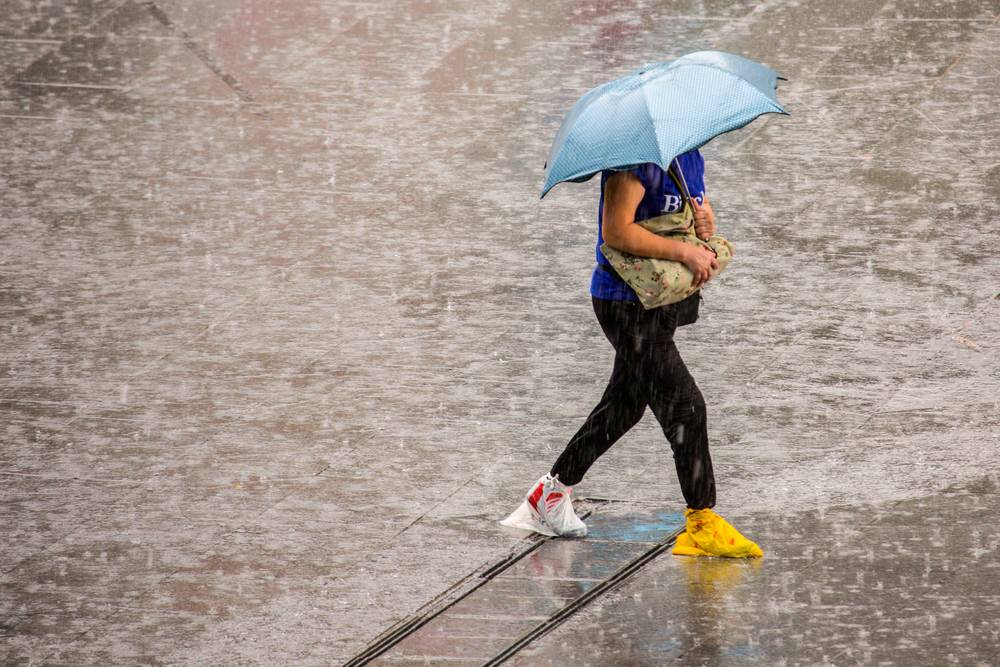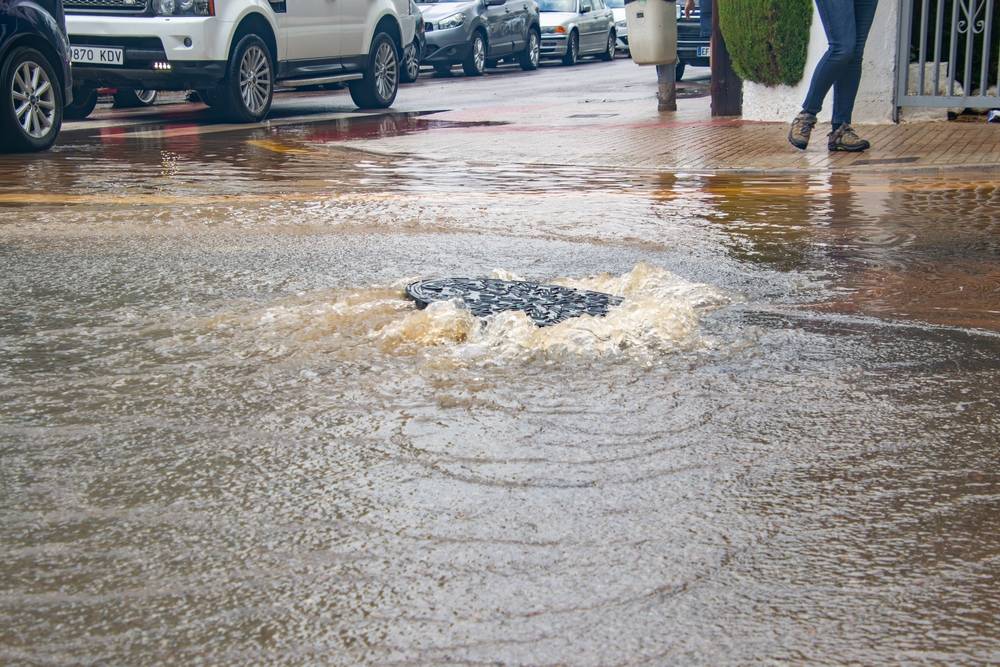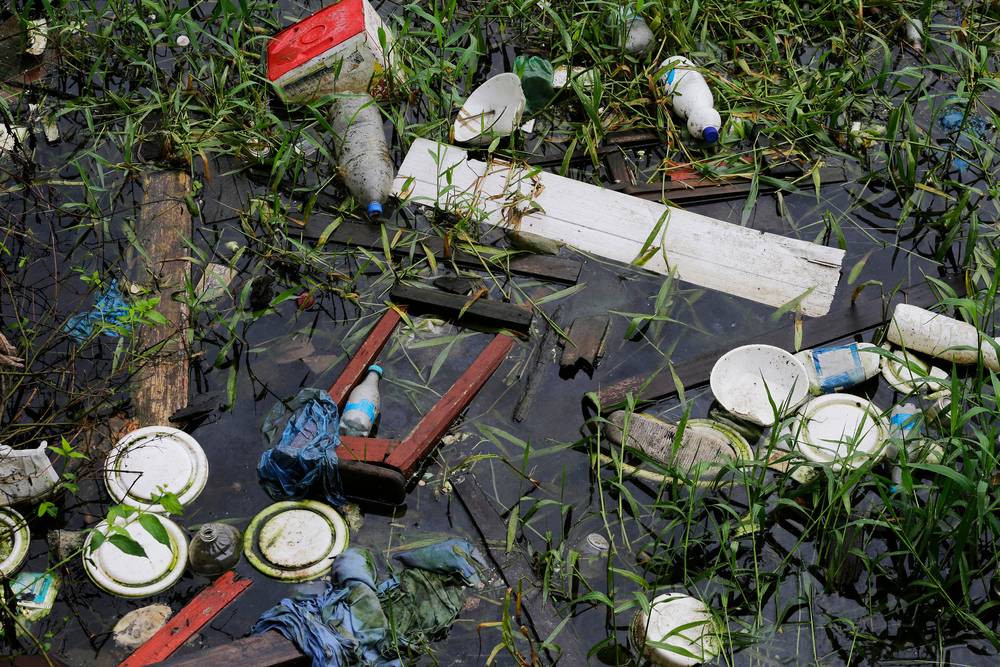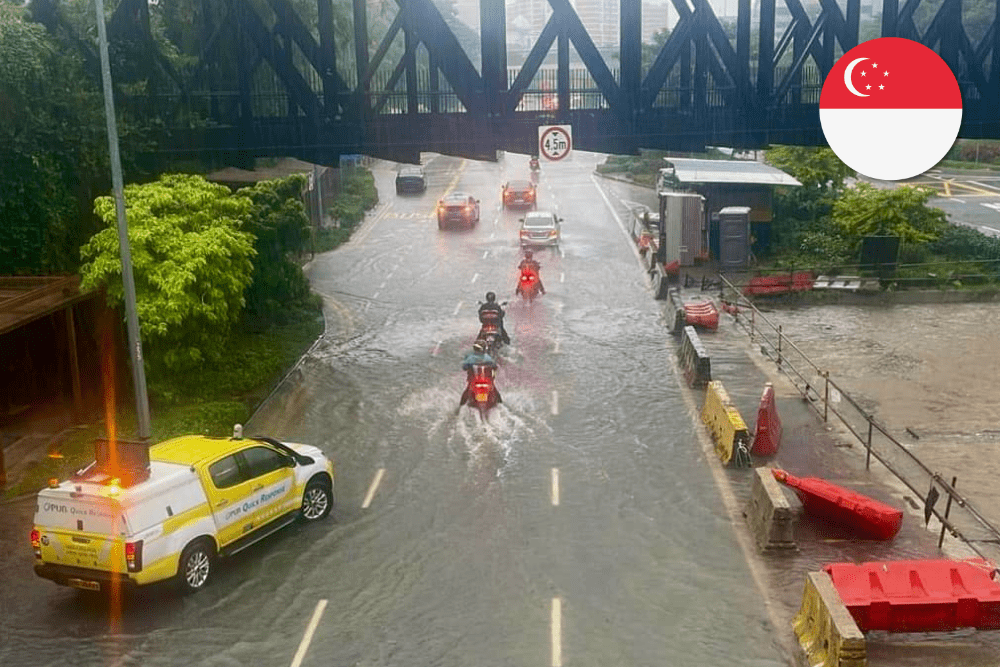Flash Floods Disrupt Singapore as Heavy Rain Hits
Heavy rain on 29 December 2024 caused flash floods in Bukit Timah and other parts of the island. National water agency PUB reported that areas like Dunearn Road and Bukit Timah Road near King Albert Park were severely affected but cleared within minutes due to swift response measures.
Other areas, including Choa Chu Kang, Toa Payoh, and Tanjong Pagar, also experienced significant disruptions, with PUB issuing flood-risk alerts and advising the public to avoid affected roads.
@bindimaa #Flood #flashflood #naturadisaster #singapore #warning⚠️ ♬ Danger – SoundAudio
The deluge brought 134.6 mm of rainfall within two hours, accounting for 41% of Singapore’s average December rainfall, and ranked among the heaviest recorded in decades. While drainage projects are underway to mitigate future incidents, floods continue to pose immediate risks to safety and health.
From exposure to contaminated water to the dangers of navigating flood zones, understanding what to avoid can prevent illness and injury during such events.
Health Risks and Safety Tips During Floods in Singapore
Floods in Singapore pose serious health risks that can affect both individuals and communities. Here are five critical health-related dangers to be aware of during floods, along with practical tips to protect yourself and your family.
1. Avoid Contact with Contaminated Floodwater

Floodwaters often mix with harmful contaminants, including sewage, industrial chemicals, and waste. Exposure can lead to skin infections, rashes, and illnesses such as leptospirosis, a bacterial disease transmitted through contact with contaminated water.
What to Do:
- Avoid direct contact with floodwater. Be careful when walking on the sidewalks as water may splash on you.
- If unavoidable, wear protective gear such as rubber boots and gloves.
- Thoroughly clean and disinfect skin that comes into contact with floodwater, especially if you have cuts or wounds.
2. Watch Out for Hidden Hazards in Floodwaters

Floodwaters conceal dangers such as open drains, sharp debris, and loose manhole covers, which can cause serious injuries. Even shallow water can knock a person off balance or lead to accidents.
What to Do:
- Stay away from flood-prone areas and avoid wading through water, even if it appears shallow.
- If you must cross a flooded area, use a stick to test the depth and check for obstacles.
- Keep children and pets away from floodwaters, as they are more vulnerable to hidden dangers.
3. Prevent Electrocution Risks in Flooded Areas
Flooding can compromise electrical systems, creating life-threatening risks from submerged outlets, damaged appliances, or exposed wires.
What to Do:
- Turn off the electricity supply at the mains if flooding occurs in your home, but only if it is safe to do so.
- Avoid using or touching electrical appliances or switches until they have been inspected and declared safe by a licensed electrician.
- Stay away from fallen power lines and alert authorities immediately.
4. Do Not Consume Potentially Contaminated Food or Water
Floods can contaminate drinking water sources and spoil food. Consuming these can cause gastrointestinal illnesses such as diarrhoea, which can quickly dehydrate vulnerable individuals like children and the elderly.
What to Do:
- Discard any food or drinks that have come into contact with floodwater.
- Boil water before drinking if you suspect contamination, or use bottled water until authorities confirm that tap water is safe.
- Clean and disinfect utensils and cookware that were exposed to floodwater.
5. Take Hygiene Seriously During Post-Flood Cleanup
Even after floodwaters recede, health risks persist. Contaminated surfaces, belongings, and stagnant water can harbour harmful bacteria and viruses.
What to Do:
- Wear gloves, masks, and waterproof boots while cleaning.
- Disinfect surfaces thoroughly and dispose of items that cannot be properly cleaned.
- Seek medical advice if you develop symptoms like fever, nausea, or skin irritation after flood exposure.
6. Protect Yourself from Dengue

Floodwaters and stagnant water left behind create ideal breeding grounds for mosquitoes, increasing the risk of diseases such as dengue fever. Singapore, with its tropical climate, is already prone to these health risks, and floods exacerbate the issue.
What to Do:
- Drain stagnant water from containers, pots, and other areas around your home to prevent mosquito breeding.
- Apply mosquito repellent on exposed skin and use mosquito nets while sleeping.
- Wear long-sleeved clothing and trousers to minimise mosquito bites.
Learn more: 5 New Wolbachia Mosquito Release Sites in Singapore to Curb Dengue
Minimising Health Risks for Families and Children
Children are particularly vulnerable during floods due to their smaller size and developing immune systems. Ensuring their safety requires extra precautions.
Tips for Families:
- Keep Children Indoors: Prevent children from playing in or near floodwaters, which may contain harmful contaminants or hidden hazards.
- Ensure Hygiene: Teach children to wash their hands frequently, especially if they come into contact with floodwater or contaminated surfaces.
- Pack Essentials: While severe disruptions during floods are uncommon in Singapore, it is always wise to be prepared. Include items such as formula, nappies, or specific medicines for children in your flood preparedness kit.
Stay Informed and Stay Safe
In today’s unpredictable weather, information is your greatest ally. PUB, offers a dedicated Telegram channel, PUB Flood Alerts, to keep residents updated on potential flash floods and areas at risk.
Visit the PUB website or join the Telegram channel at t.me/pubfloodalerts to stay one step ahead this rainy season.
Image credit: PUB, Singapore’s National Water Agency via Facebook

